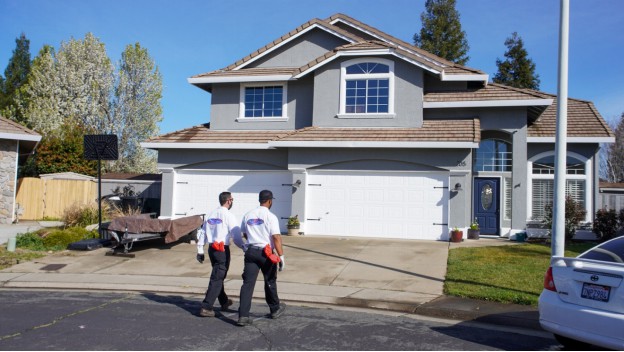Windows are a crucial part of your home’s functionality and aesthetics. Over time, windows may wear out, become less energy efficient, or simply need an update to match evolving styles. Window replacement is a common home improvement project, but you may have a lot of questions before you get started.
Here are 7 frequently asked questions about window replacement from the pros at Bell Brothers to prepare for your project.
1. When Is It Time to Replace Windows?
One of the most common questions homeowners have is how to determine when it’s time to replace their windows. Several signs indicate that window replacement is necessary:
- Drafts and energy efficiency:Old or poorly maintained windows often develop drafts, causing a significant loss of energy. If you notice a sudden spike in your energy bills or feel drafts around your windows, it may be time for a replacement.
- Visible damage:Cracked or broken windowpanes not only compromise the aesthetic appeal of your home but also pose security risks. If you have visible signs of damage, such as rot or warping, you should repair them as soon as possible.
- Difficult operation:Windows should open and close smoothly. If you’re struggling with difficult window operation, it could be because of worn-out hardware or misalignment of the window sash.
- Noise reduction:Modern windows are designed to minimize external noise. If you find that your current windows offer little insulation against sound, upgrading to a double or triple-pane window can make a big difference.
- Condensation between panes:Condensation between window panes is a clear indicator of seal failure. This not only affects visibility but also diminishes the insulating properties of the window.
- Outdated style:Aesthetic considerations also come into play. If your windows are outdated or no longer complement the overall design of your home, replacement can enhance the curb appeal.
2. What Types of Windows Are Available?
Homeowners often wonder about the variety of windows available on the market. The choice depends on factors such as architectural style, climate, and personal preference. Here are some common types of windows:
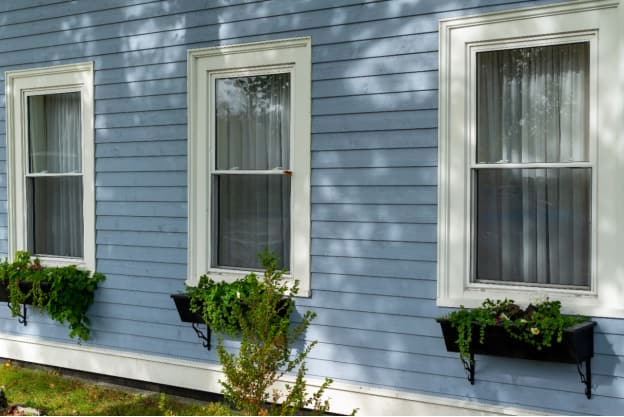
- Double-hung windows:These windows feature two vertically sliding sashes, providing excellent ventilation control.
- Casement windows:These windows are hinged on one side and operated by a crank to provide a modern and stylish look.
- Slider windows:Slider windows have one or more panels that move horizontally. They are easy to operate and suitable for contemporary home designs.
- Awning windows:Similar to casement windows, awning windows are hinged at the top and ideal for providing ventilation even during light rain.
- Picture windows:Fixed and inoperable, picture windows are designed to showcase unobstructed views and allow an abundance of natural light.
- Bay and bow windows:These windows extend outward, creating a bay or bow shape, adding space and architectural interest to a room.
- Skylights:If you’re looking to add a lot of natural light to your interior spaces, skylights can be a great addition.
Understanding the advantages and disadvantages of each type of window can help you make informed decisions based on your specific needs and preferences.
3. How Much Does Window Replacement Cost?
The cost of window replacement varies based on several factors, including the type of windows, the number of windows being replaced, and the quality of materials. On average, homeowners can expect to pay between $300 and $1,000 per window, including the cost of the window and installation. Keep in mind that high-quality, energy-efficient windows may command higher upfront costs, but that’s offset by long-term savings on energy bills.
It’s best to get a few quotes from reputable contractors like Bell Brothers and evaluate your options for each type of window you’re looking to replace. Keep in mind that some energy-efficient windows may qualify for tax credits or rebates, providing financial incentives that may help with the initial costs.
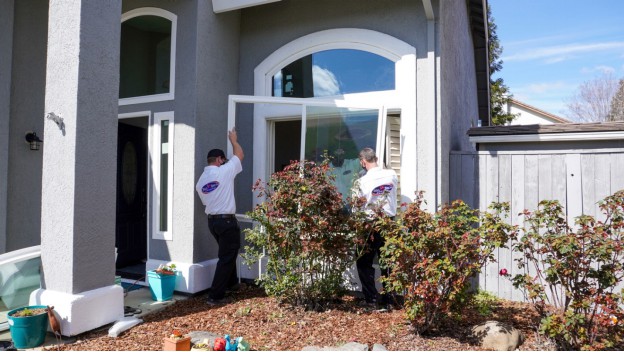
4. Can I Install Windows Myself or Should I Hire a Professional?
There are a lot of home improvement projects that DIY enthusiasts can tackle, but window replacement is generally not only of them. A lot of precision and expertise goes into installing windows to ensure proper sealing, insulation, alignment, and more. if your windows are installed improperly, you could end up with drafts, leaks, and reduced energy efficiency, ultimately costing you more in the long run than you would save by making it a DIY project.
Professional window installers have the necessary tools and experience to handle the intricacies of the installation process. They can also provide valuable insights into the best types of windows for your home and climate. Hiring a licensed and insured contractor ensures that the work is completed to industry standards, giving you peace of mind.
5. What Are the Benefits of Window Replacement?
- Energy savings:Upgrading to energy-efficient windows can significantly reduce heating and cooling costs. These ongoing energy savings add up over time, contributing to a positive return on your investment.
- Increased home value:New windows enhance your property’s curb appeal and contribute to a well-maintained and modern appearance for your home.
- Improved comfort:Energy-efficient windows not only save money but also contribute to a more comfortable living environment by reducing drafts and maintaining a consistent indoor temperature.
- Enhanced security:Modern windows often come with advanced security features, providing homeowners with increased peace of mind.
6. What Maintenance Is Required for New Windows?
After investing in new windows, homeowners often inquire about the maintenance required to ensure longevity and performance. While modern windows are designed to be low maintenance, there are some steps you can take to ensure you get the most out of your investment:
- Regular cleaning:Dirt and debris can accumulate on windows, affecting visibility and potentially causing damage. Regular cleaning with a mild detergent and a soft cloth can prevent these issues.
- Inspecting seals and weatherstripping:Periodically check the seals and weatherstripping to ensure they remain intact. Damaged seals can lead to drafts and reduced energy efficiency.
- Lubricating moving parts:If your windows have moving parts, such as hinges or tracks, lubricate them annually to ensure smooth operation.
- Addressing minor repairs promptly:If you notice any issues with your windows, such as a small crack or loose hardware, address them promptly to prevent future damage.
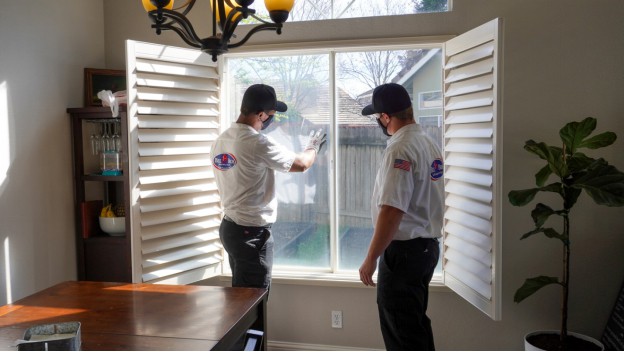
7. Are There Government Incentives for Energy-Efficient Windows?
Many homeowners are interested in making environmentally conscious choices and wonder if there are government incentives for choosing energy-efficient windows. There are some government incentives available when you make energy-efficient home upgrades, including installing windows.
Take a look at the programs available in your region, including tax credits, rebates, or financing options for qualifying window installation. Consider what’s available to you when you’re choosing your new windows. These incentives not only help with the cost of your project but contribute to better environmental practices.
Common Misconceptions About Window Replacement
Now that we’ve covered the 7 most common questions about window replacement, let’s dispel some of the myths and misconceptions.
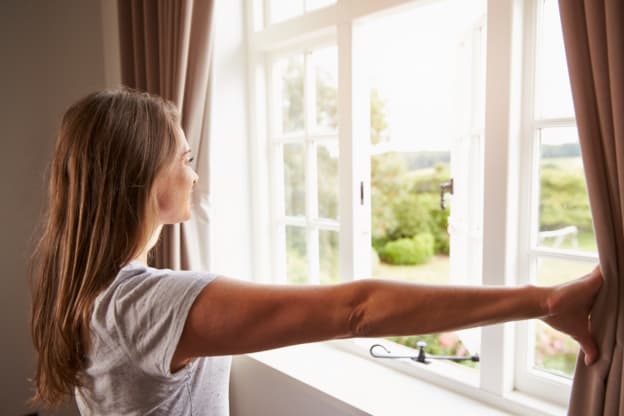
Myth: All Windows Are the Same
While it’s true that windows share some common features, such as glass panes and frames, not all windows are created equal. Different types of windows offer varying levels of energy efficiency, durability, and aesthetic appeal. Understanding the distinctions between window types allows homeowners to choose the option that best suits their specific needs and preferences.
Myth: Window Replacement Is Only for Aesthetic Purposes
While improved aesthetics are a notable benefit of window replacement, the advantages extend beyond appearances. Energy-efficient windows contribute to reduced utility bills, enhanced comfort, and a smaller environmental footprint. You should view window replacement as a holistic improvement that addresses both form and function.
Myth: DIY Installation Is Always Cost-Effective
Wrong! While the allure of cost savings may entice you to consider a do-it-yourself approach, window replacement is a task best left to professionals. Improper installation can lead to issues such as air leaks, water infiltration, and decreased energy efficiency, ultimately costing more in repairs and increased utility bills. Investing in professional installation ensures that the windows perform optimally and provide the expected benefits.
Myth: Window Replacement Always Requires Full Frame Removal
In some cases, windows can be replaced without removing the entire frame. This is known as a retrofit or insert installation, where the new window is installed into the existing frame. While full frame replacement may be necessary in certain situations, such as severe damage or structural issues, retrofit installation is a less invasive option that can save both time and money.
Myth: Window Replacement Is Only Necessary for Older Homes
While older homes may have windows that are more likely to require replacement, window issues can affect houses of any age. Factors such as weather exposure, poor maintenance, and low-quality materials can lead to the need for replacement in newer homes as well. Regular inspections and addressing issues promptly can help prolong the lifespan of windows in any home.
Upgrade Your Windows
